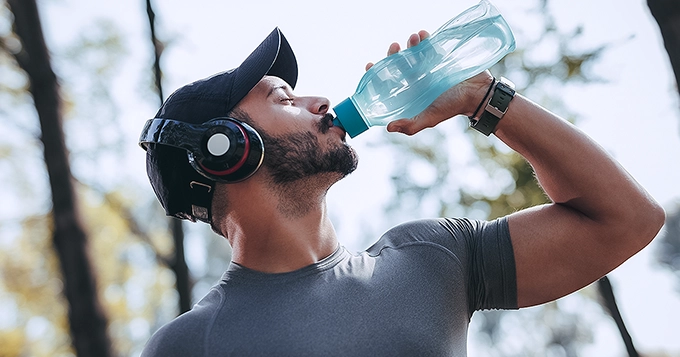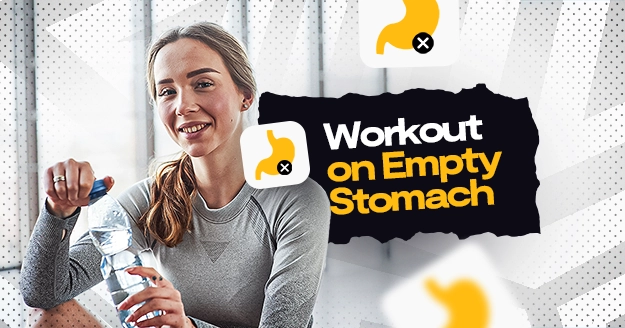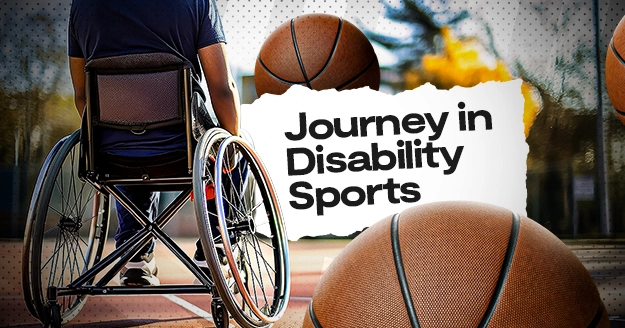Understanding Fasted Exercise
First off, what exactly is fasted exercise? In simple terms, it is exercising on a pre workout empty stomach. It involves working out when your body has not consumed food for several hours, typically 8-12 hours, placing you in a fasting state. This differs from exercising after a meal or snack, which some refer to as “fed” exercise.
To qualify as fasted exercise, you should have gone without eating for at least 8-12 hours beforehand. For instance, if your last meal was around 7 pm and you go for a run at 7 am, that counts as fasted exercise.
However, exercising 3-4 hours after eating is considered ‘fed’ exercise, not fasted. So, if you had your last meal at 1 pm and hit the gym at 4 pm, that’s considered “fed” exercise, not fasted.
There are people who work out in the morning or late at night may find themselves without time for a snack or meal beforehand, making fasted exercise seem like the only option.
What happens if you take pre workout on an empty stomach? Should you do it or not? Here are some pros and cons of fasted exercise:
Pros
- Increased Fat Burning
Fasted cardio is believed to enhance fat burning. Your body uses its stored fat instead of glycogen when it is fasting because it has less of the latter. Over time, this may result in increased fat loss.
- It might make you eat less later
The study found that men who exercised in a fasted state consumed significantly less food throughout the day compared to those who ate before exercising. This approach could be beneficial for individuals struggling to manage their appetite, helping them keep their diet in check.
- Improved insulin sensitivity
People aiming to control their blood sugar levels or avoid type 2 diabetes may find that fasted exercise improves insulin sensitivity. This improvement in glucose utilization could potentially lower the risk of developing insulin resistance.
- Enhanced mental clarity
Some people find that training on a pre workout empty stomach provides mental clarity and focus. Without the distraction of digesting food, they feel more alert and energized during their workout sessions.
- Exercise on an empty stomach if you’re not a morning eater to avoid nausea.
Fasted exercise can be a helpful option for those who don’t eat in the morning, as it may allow them to work out without feeling nauseous or sick.
Cons
- Empty stomach exercise may mean missing out on EPOC
EPOC, or excess post-exercise oxygen consumption, occurs naturally after exercise, helping you burn more calories even if you already finished your workout. However, it typically requires exercising at a relatively high intensity for at least 30-45 minutes. Exercising on an empty stomach may make it challenging to reach this level of intensity.
- Decreased performance
Working out without fuel in your system can lead to decreased performance. Without proper diet, your exercises may suffer in terms of endurance, intensity, and overall effectiveness.
You may find it challenging to push yourself as hard or sustain intense exercise for long periods. This can hinder progress in terms of strength gains and endurance.
- Increased risk of injury
Exercising without proper fueling can leave you feeling fatigued and more susceptible to injury. Without sufficient glycogen stores, your muscles may lack the energy needed to support rigorous physical activity, increasing the risk of strains, sprains, and other injuries.
Risks such as hypoglycemia (low blood sugar levels) can cause weakness, dizziness, and fainting during exercise, potentially leading to injuries or accidents.
- Risk of muscle loss
Exercising on an empty stomach might elevate the risk of muscle breakdown, particularly during extended exercise sessions. Without adequate nutrients, your body may try to take the energy it need from your muscle tissues, potentially leading to muscle loss over time. This is counterproductive to anyone trying to gain or keep muscular mass.
- You’ll Trigger Stress Hormones
Exercising on an empty stomach pre workout triggers cortisol, which promotes fat burning and alertness. However, excessive cortisol can increase inflammation, potentially hindering recovery and goal attainment.
The Verdict
In the realm of fitness, there’s no one-size-fits-all approach, and the decision to hit the gym on an empty stomach is no exception. The effectiveness of fasted exercise varies widely among individuals. Factors such as individual metabolism, fitness goals, and overall health play significant roles in determining the suitability of fasted exercise.
It’s essential to recognize that while some individuals may thrive with fasted workouts, others may find it challenging or even detrimental to their performance and well-being.
If you eventually decide to workout on an empty stomach, it’s important to do so mindfully and responsibly. Here are some tips:
Tips When Hitting the Gym on an Empty Stomach
- Stay Hydrated: Before heading to the gym, ensure you’re well-hydrated. Even though you’re not consuming food, hydration is crucial for maintaining performance and preventing dehydration during your workout. Drinking water or electrolyte-rich beverages to stay hydrated is important, as well as replenishing any fluids lost overnight.
- Start Slowly: If you’re new to exercising on an empty stomach, start with shorter, less intense workouts and gradually increase the intensity and duration as your body adapts. This approach can help minimize the risk of fatigue and discomfort during your workouts.
- Choose Low-Intensity Activities: Opt for low to moderate-intensity exercises, such as walking, yoga, or light cardio, when working out on an empty stomach. These low-intensity exercises are less taxing on your body and may be more sustainable without food intake.
- Time Your Workouts Wisely: Consider scheduling your workouts strategically when exercising on an empty stomach. Aim for morning sessions, as your body’s glycogen stores are typically lower after fasting overnight. This timing may maximize the potential benefits of fasted exercise.
- Listen to Your Body: Notice how your body responds during workouts. If you start feeling excessively fatigued, lightheaded, or dizzy, it’s essential to listen to your body’s cues and consider adjusting your exercise intensity or taking a break to refuel if necessary.
- Post-Workout Nutrition: After completing your workout, prioritize refueling your body with a balanced diet (meal or snack) containing protein and carbohydrates to support replenish glycogen stores and muscle recovery. Aim to consume a nutrient-rich meal within 30 to 60 minutes post-exercise.
- Monitor Progress: Keep track of your progress and how your body responds to exercising on an empty stomach over time. Note any changes in energy levels, performance, and overall well-being to determine whether this approach aligns with your fitness goals and lifestyle.
- Consult a Professional: If you have any concerns or underlying health conditions about exercising on an empty stomach, consult a certified fitness trainer or healthcare professional for personalized guidance and recommendations to fit your needs and circumstances.
By following these tips, you can make informed decisions about incorporating fasted exercise into your fitness routine and optimize your workout for better results and overall well-being. Remember that what works for one person could not work for another, so you really need to figure out which strategy best suits your needs and objectives.
Best Pre Workout for Empty Stomach
It’s crucial to select a pre-workout option that is both light and energizing, minimizing the risk of digestive discomfort while not impeding your fasted state. Here are a few options:
- Black Coffee: A cup of black coffee can provide a natural energy boost without adding calories or disrupting your fasted state. The caffeine in this drink can enhance alertness and focus, making it an excellent choice for early morning workouts.
- Green Tea: Like coffee, green tea contains caffeine, which can help improve energy levels and mental focus. Additionally, green tea offers antioxidant properties that may benefit overall health.
- BCAAs (Branched-Chain Amino Acids): BCAAs, such as isoleucine, leucine, and valine, are essential amino acids that can be consumed in supplement form. BCAAs can help prevent muscle breakdown during fasted sessions and provide a source of energy without significantly impacting insulin levels.
- Electrolyte Drink: An electrolyte drink can help replenish fluids and essential minerals lost through sweat during exercise. Look for a low-calorie, sugar-free option to avoid unnecessary calories and prevent gastrointestinal distress.
- Creatine: Creatine can improve your strength, power, and muscle endurance. Consuming creatine before a fasted workout may help enhance performance without interfering with your fasted state.










